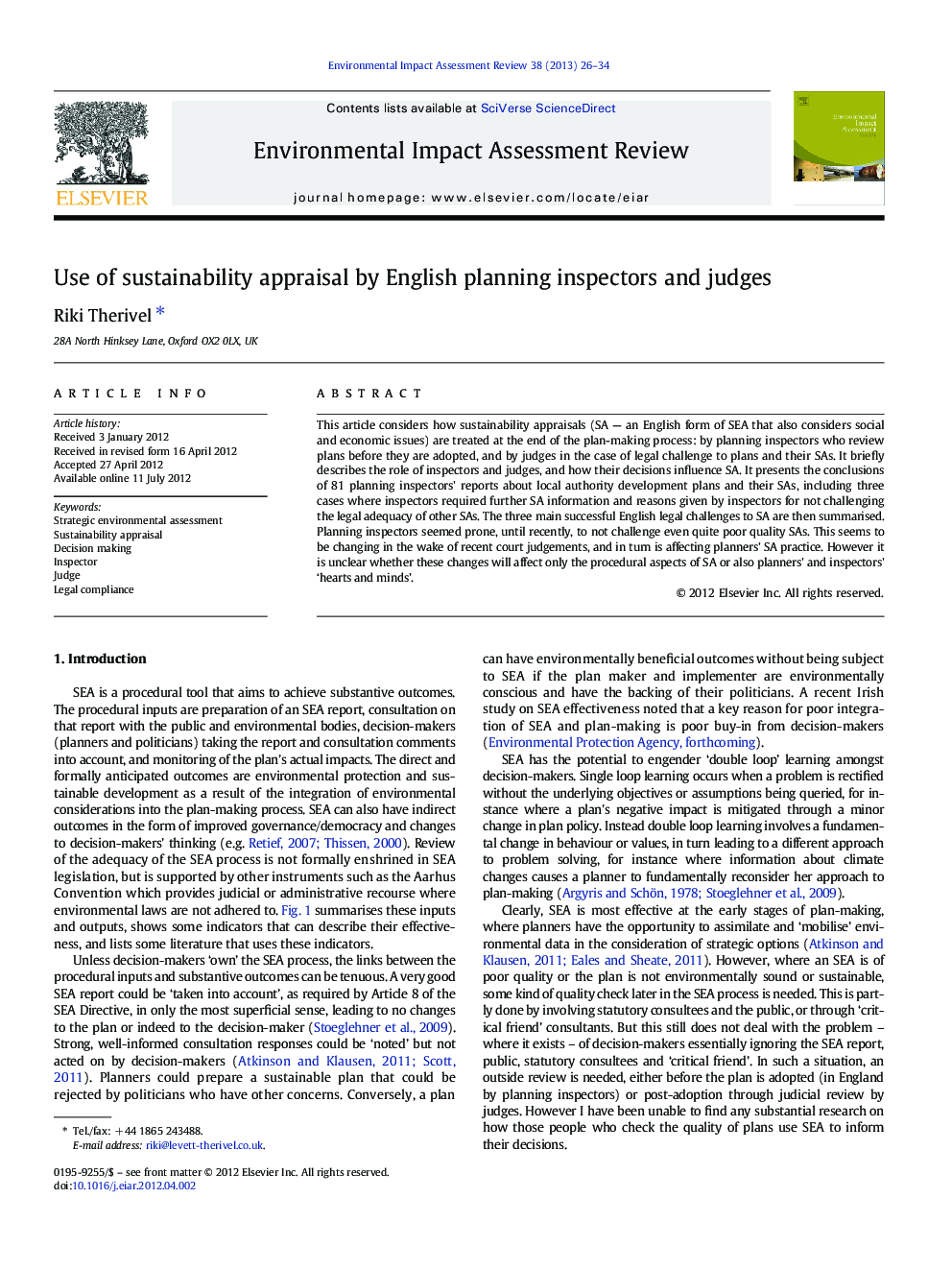| Article ID | Journal | Published Year | Pages | File Type |
|---|---|---|---|---|
| 1052824 | Environmental Impact Assessment Review | 2013 | 9 Pages |
This article considers how sustainability appraisals (SA — an English form of SEA that also considers social and economic issues) are treated at the end of the plan-making process: by planning inspectors who review plans before they are adopted, and by judges in the case of legal challenge to plans and their SAs. It briefly describes the role of inspectors and judges, and how their decisions influence SA. It presents the conclusions of 81 planning inspectors' reports about local authority development plans and their SAs, including three cases where inspectors required further SA information and reasons given by inspectors for not challenging the legal adequacy of other SAs. The three main successful English legal challenges to SA are then summarised. Planning inspectors seemed prone, until recently, to not challenge even quite poor quality SAs. This seems to be changing in the wake of recent court judgements, and in turn is affecting planners' SA practice. However it is unclear whether these changes will affect only the procedural aspects of SA or also planners' and inspectors' ‘hearts and minds’.
► Inspectors tend to err in favour of the submitted plan, even where its sustainability or the quality of its SA is dubious. ► In contrast to inspectors, judges seem to be taking a broad and rigorous view of SEA requirements. ► Planners and inspectors are changing their behaviour to avoid legal challenge.
